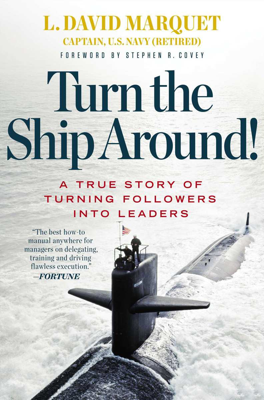Pain
Failure in Leadership and Lessons Learned
As the engineering officer on the USS Will Rogers, David Marquet attempted a new leadership method intended to empower the crew by offering them more control over their work. This contravened the typical top-down leadership style prevalent in the Navy, making him face several obstacles: - Implementation Issues: Marquet's approach led to delays and errors during maintenance, with the crew expressing a preference for the old method, where instructions were clear and directive. - Critical Failures: A significant error was discovered just before a deep dive, where a heat exchanger was improperly installed, risking severe damage to the submarine. This incident highlighted the flaws in the implementation of his empowerment strategy. - Reversion to Old Methods: Post-failure, Marquet returned to traditional command methods, leading to exhaustion and a lack of job satisfaction, although it prevented further major issues.
Career Implications
The setbacks on the USS Will Rogers also impacted Marquet's career perspective: - Perceived Career End: Given that no officers from the Will Rogers were advancing in their naval careers, Marquet predicted a grim future for his own aspirations within the Navy. - Shift in Career Path: He decided against continuing in a traditional submarine role, choosing instead to work with the On-Site Inspection Agency, although he eventually returned to submarine duty after being promoted unexpectedly.
Reflection and Theoretical Development
The challenges Marquet faced led him to deeply reconsider his approach to leadership: - Study and Reflection: He engaged in extensive reading on leadership and management, confronting the contradictions and limitations of traditional empowerment models. - Identifying Contradictions: He recognized inherent issues in the concept of empowerment within a hierarchical structure and the dangerous dependence on a singular leader's competence.
New Insights on Leadership
Marquet’s experiences and reflections led to the realization that: - Fundamental Flaws in Existing Models: Traditional models that rely heavily on the leader for all decisions could lead to systemic problems and inhibit true empowerment and organizational competence. - Need for a New Model: He concluded that a more effective model would involve real empowerment where leadership is diffused throughout the organization, not just residing at the top.
Reflection Questions
The chapter concludes with questions that challenge the reader to think about the necessity and execution of empowerment in their own organizations, the dependency on singular decision-makers, and the influence of popular portrayals of leadership on personal and organizational practices.
